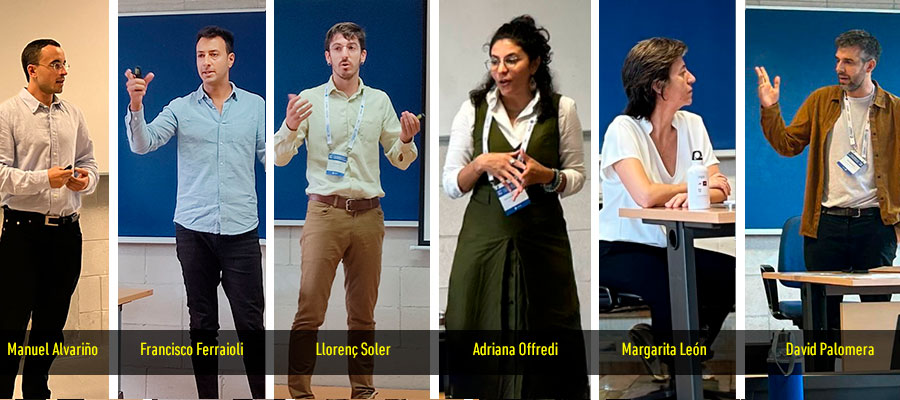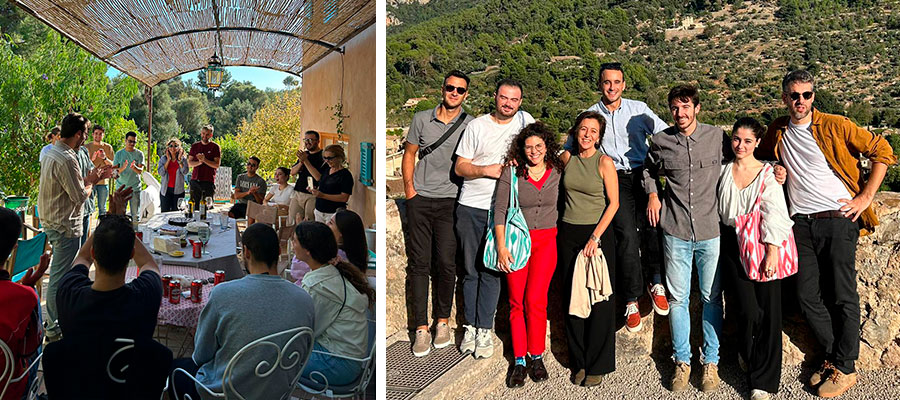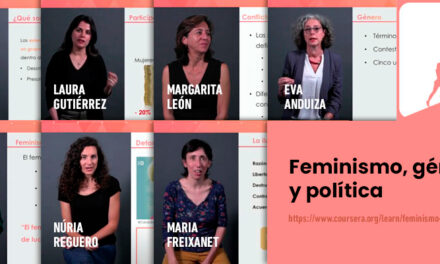The IX Congress of the Spanish Social Policy Network (REPS ESPAnet-Spain): Global crises and local impacts: trends and public-community responses for an eco-social transition was held at the University of the Balearic Islands (UIB) on 25, 26 and 27 October (2023). The congress was a success both in terms of attendance (more than 400 participants in 20 thematic panels) and the quality of the papers, communications and plenary sessions.
The IGOP was well represented. We present various ongoing research projects, both doctoral theses and current competitive projects. Here is a brief summary:

Addressing the case of the Minimum Living Income (MMI), Francisco Ferraioli and Llorenç Soler, pre-doctoral researchers at the IGOP presented “Evaluating administrative barriers and co-production practices in the implementation of the implementation of the Minimum Living Income” where they delve into the problems of implementing the MMI. Their tentative conclusion is that the design of the MVI placed considerable administrative burdens on potential recipients, accentuated by the mandatory digital application. These accessibility challenges resulted in significant psychological and learning costs for the often vulnerable applicants, which negatively affected their ability to process the application. However, they explain that this situation prompted local governments and NGOs to actively work to ameliorate the problem through collaborative co-production practices, although some legal constraints imposed by the central government in a multi-level environment partly hinder these co-production efforts. The paper was presented at the panel on “New challenges in the field of minimum income”, organised by Ana Arriba (UAH) and Laura Martínez (UN). The feedback was very positive, to the extent that workers from the Ministry of Inclusion and Social Security were interested in the work.
Pedro Manuel Bellón, pre-doctoral researcher at the IGOP, presented at the REPS 2023 congress the paper: Closing the gender gap? The labor market effects of extending paternity leave in Spain which is part of the “Fairleave” project led by Dani Marinova. At the presentation, the first results of the research study on the employment situation of mothers after the introduction of the new paternity leave were presented. In addition to being able to present the results, the feminist policy debates discussed which types of public policies are of most interest in order to reduce gender gaps.
Manuel Alvariño Vázquez, predoctoral researcher at the European University Institute and visitor this year at the IGOP, presented a chapter co-authored by Margarita León entitled ‘Riding Social Investment Waves: Partisan Agreements in Unstable Economic Currents’. The chapter, part of a book edited by Anton Hemerijck, argues that while the idea persists that the Spanish welfare state is conservative and familist, there have been important advances in gender-sensitive policies, lifelong learning and inclusive protection, in line with the paradigm of ‘Social Investment’. This is because there is a relative cross-party consensus that this is the model to follow, which is reflected in the trajectory of certain policies. However, this trajectory has been markedly unstable, as represented by the austerity era, due to a highly cyclical economy affected by a dualised and unstable labour market. Thus, it is economic cycles rather than changes of government that tend to explain the ups and downs in the expansion or retreat of social policies in Spain. The chapter generated a great deal of attention and discussion in panel 9 Southern European Welfare States coordinated by Marga León (UAB) and Matteo Jessoula (University of Milan).
Matilde Cittadini, pre-doctoral researcher at IGOP, presented at the REPS 2023 congress, in the panel 15 ‘New challenges in the field of minimum income and welfare benefits’ with coordinators Arriba Gonzalez de Durana and Martinez-Vito, the paper: “Integrating Intersectionality into Minimum Income Policy Design: A systematic literature review”. The presentation presented the results of the systematic literature review, which showed a significant gap in the issue of minimum income schemes, both at the design level and in academia, in terms of the integration of intersectionality theory. This demonstrates the imperative need to incorporate this conceptual framework. In addition, it was argued why it is important to include intersectionality in minimum income schemes.
Adriana Offredi, pre-doctoral researcher at the IGOP, presented the paper “Care and Minimum Income Policies: between Social Rights and Social Monetary Benefits” in panel 7 ‘The reconfiguration of the care model’, coordinated by Raquel Martínez Buján, Lara Maestripieri, Sara Moreno Colom and Vicente Marbán Gallego The research analyses the conditionality of European minimum income policies from the point of view of the tension between paid and unpaid work. A tension that is particularly present in female minimum income recipients, in single-parent households and with dependent children. The methodology and preliminary results were presented together with the presentation of the capability theory as a framework.
David Palomera, D. in Public Policy from the UAB and IGOP, presented the results and conclusions of an article from his thesis, defended on 4 September. The communication was entitled “Rastreando innovaciones en los cuidados de larga duración: un análisis del proceso de difusión y adopción de Buurtzorg en Cataluña y Dinamarca”. The diffusion of the Buurtzorg model has gained popularity in recent years and the article analyses the mechanisms of the diffusion process and how the institutional context has played a crucial role in the widespread adoption of the model in Denmark (as opposed to the low adoption in Catalonia). The article is of interest to the research fields of welfare state and care, public administration, and social policy and social work.
Lara Maestripieri, Ramon y Cajal’ researcher, presented at the congress the preliminary results of the #VulnYouth project, funded by the LaCaixa Foundation. The paper “Economic insecurity among Spanish Youth: its effect on mental well-being” was presented in panel 20 ‘Poverty, inequality and redistribution’, coordinated by Alba Lanau and Olga Salido. The communication shows the impact that insecurity has on the mental health of young Spaniards, including dimensions related to work (precariousness) and the inability to secure a decent standard of living. The research project involved: Miriam Acebillo Baqué (CSIC), Matilde Cittadini (IGOP), Alba Lanau (UPF), Adriana Offredi (IGOP) and Karen van Hedel (University of Utrecht).
Finally, Margarita León presented her book El Arte de Pactar. Estado de Bienestar, Desigualdad y Pacto Social (Catarata, 2023) and moderated the plenary session on the 10th anniversary of the REPS with the participation of Miguel Laparra, Ana Guillén and Gregrorio Rodríguez Cabrero.
In addition to the intense academic activity we also highlight the guided tour of Valldemossa courtesy of the Mallorcan Llorenç and the fantastic lunch at Ca Soler-Buades with views of the Serra de Tramuntana, thank you! It took us a little while to get back.
















